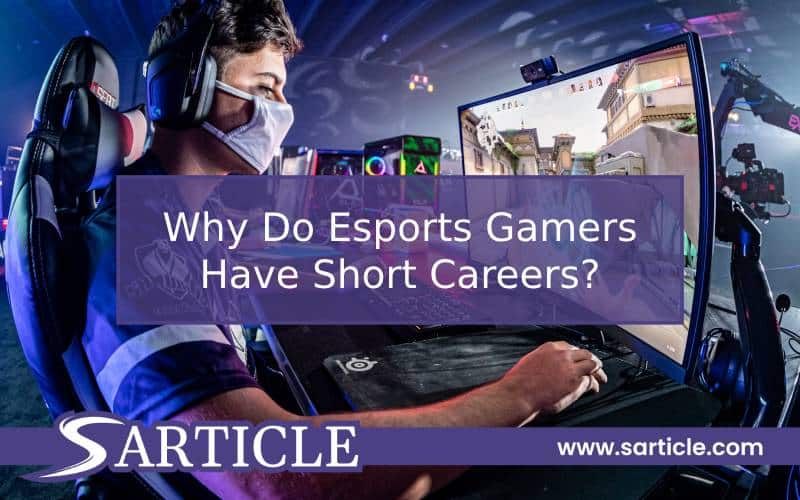Esports, an industry that has seen exponential growth in recent years, has captivated millions worldwide, creating a competitive landscape that rivals traditional sports. However, behind the glitz and glamour lies a concerning trend: the surprisingly short professional careers of esports gamers. Despite the allure of fame, fortune, and global recognition, many esports athletes find themselves facing premature retirement due to various factors, both physical and psychological. In this comprehensive analysis, we delve into the intricacies of the esports world to understand the compelling reasons behind the abbreviated careers of these talented individuals.
Intense Physical and Mental Demands
Esports, contrary to conventional belief, demands rigorous physical and mental exertion, akin to that of traditional athletes. Competitive gaming requires hours of continuous screen time, often leading to eye strain, posture-related issues, and repetitive strain injuries. Gamers are prone to musculoskeletal problems, including carpal tunnel syndrome and tendinitis, as a result of prolonged gameplay. The combination of these physical demands can significantly impact the longevity of a gamer’s career.
Mental fortitude is another critical aspect of esports. The high-pressure environment, relentless practice schedules, and the need to constantly stay ahead in a rapidly evolving landscape can take a toll on the mental well-being of players. Stress, anxiety, and burnout are prevalent issues that plague esports athletes, contributing to their shortened careers. Additionally, the lack of a proper support system to address these psychological challenges further exacerbates the problem.
Evolving Nature of Esports Titles
The world of gaming is marked by its dynamic nature, with new titles, updates, and patches regularly altering the competitive landscape. Esports professionals are often compelled to switch games or adapt to new gaming environments to remain relevant and competitive. This perpetual need for adaptation can be mentally exhausting, especially for those who have already established themselves in a specific game. With each new release, the established hierarchy can shift, leading to the decline of some players who struggle to keep up with the evolving trends.
Lack of Long-Term Financial Stability
While the top-tier esports professionals enjoy lucrative contracts, sponsorships, and prize money, the majority of gamers struggle to secure a stable financial future. The absence of sustainable financial security can discourage players from committing to a long-term career in esports. Many players, recognizing the transient nature of fame and success, opt for early retirement to pursue alternative career paths that offer more stability and security.
Limited Infrastructure for Career Extension
Unlike traditional sports, which often have well-established systems for retired athletes, the infrastructure for career extension and transition in esports remains limited. Opportunities for retired gamers to transition into coaching, commentary, or other roles within the industry are not as prevalent as they should be. The absence of a robust support system for former esports athletes often leads to their premature departure from the professional scene.
The Need for Proactive Measures
In addressing the issue of short esports careers, it is imperative for industry stakeholders to proactively implement measures that prioritize the well-being and longevity of gamers. Establishing comprehensive health and wellness programs, including physical training, mental health support, and ergonomic guidance, can significantly contribute to the overall sustainability of esports careers. Moreover, fostering a culture of financial literacy and stability can encourage players to view esports as a viable long-term profession.
In conclusion, the brevity of esports careers stems from a multitude of factors, including physical demands, mental challenges, the evolving nature of the industry, and the lack of comprehensive support systems. As esports continues to gain prominence on the global stage, it is essential for the industry to prioritize the holistic well-being of its players. By implementing sustainable measures that cater to the diverse needs of esports athletes, we can pave the way for a more enduring and prosperous future for the world of competitive gaming.


